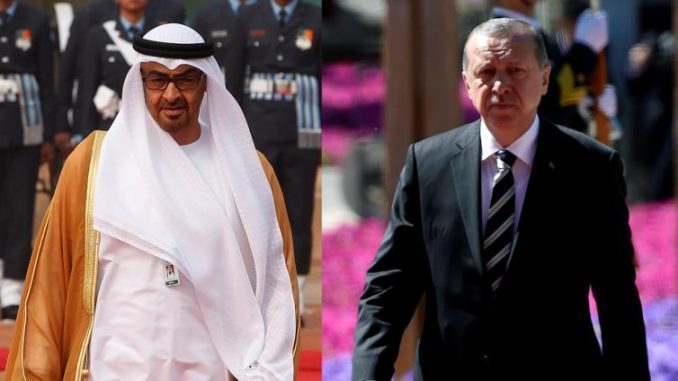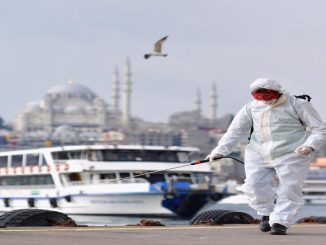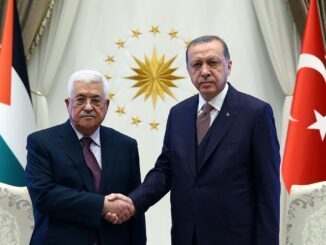
Turkish-Somali relations date back to the sixteenth century when the Ottomans came to Somalis’ aid fending off Ethiopian and Portuguese expeditionary forces. By the seventeenth century, Somali coastal towns were controlled by local sultanates with nominal links to the Ottoman Empire.
And by the way, by coming to the recent act-nodes, Turkey has been the greatest ally for Somalia since it sent massive aid to Somalia during the 2011 devastating famine that killed hundreds of thousands of Somalis followed by massive reconstruction and development projects the Turkish government has undertaken across Mogadishu.
With the ambition of helping the underprivileged horn of Africa nation to stand on its feet after decades of war, key persistent challenges including security threats by militants emerged in recent years. However, the Turkish government was rapid to answer to one challenge vowing it keep continue supporting Somalia notwithstanding horror attacks.
In a briefing outline, Turkey’s ongoing manoeuvres and achievements so far. As Somalia arrives the entrance of a new and ambiguous post-transition phase, Ankara may probably face obstacles and will run into the country’s intricate political and security environment in delivering on numerous expectations as its honeymoon with Somalis ends.
To avoid this, the briefing suggests practical steps make the Turkish- Somalia cooperation sustainable and mutually beneficial. Turkish role is heading to maximize their strategic interests in the untapped Somali market remains a key priority for both Somali and Turkish sides and could have come at a better time for Somalia.
Unlike Turkey which has largely undertaken development and military projects in Somalia, United Arab Emirates’ projects picked out to bring a continental approach, providing a calculated what so called a support to Somalia and which the target is yet again annoyed Turkey.
But then again, one stronger challenge was getting in its way, leaving it high and dry. The United Arab Emirates, along cut time strategic opposing of Turkey, had started copy-cat major challenges in Somalia in an attempt to outshine Turkey, a move which infuriated Turkish officials who clambered back their operations in Somalia. By taking such an articulate smart power approach, UAE’s goal is to overtake Turkey but that’s a doubtful ambition in the eyes of the world and Somalis in general.
By selling its disincentive strategy, UAE has used tactful channels, holding behind closed doors meetings with Somali leaders who consequently started promoting its schemes through media sponsorships. They are using the money to help reach their ambitious goals, but Turkey can stay relaxed at this point given its immense and massive contribution to Somalia’s developments.
Notwithstanding rising challenges, Turkey has already secured long-term corporate contracts with Somalia, leaving few revenue resources for others to manage. Last year, Somalia has endowed millions of dollars contracts to the two Turkish firms last year to upgrade and run the Mogadishu seaport and airport’s operations and plus that the military exercises.
The UAE and those who control its leaders appear to have abruptly woken up to Somalia’s importance as a nation. One of their aims is to destroy Somali-Turkish friendship and alliance. If Somalia was so significant to them, they could have used their resources to help it recover from war and famine.
But that is not how the UAE operates. The geopolitical calculations of the UAE and Saudi Arabia along with the Western gang seem to have changed following Turkey’s endurance to help Somalia. They understand that in Turkey they are dealing with a serious nation that is capable of helping Somalia defeat international pressure.
Since President Recep Tayyip Erdoğan visited Mogadishu in 2011, Turkey has become involved in numerous projects in Somalia to help it become a stable, strong nation in every way. But this relationship works against the interest of those who seek to exploit and break-in both Somalia and the wider African region.
The recent Qatar crisis was another chapter in the wider geopolitical game being played in the Middle East and Africa. According to reports, Saudi Arabia and the UAE offered tens of millions of dollars in payoffs to get the government in Mogadishu on their side against Qatar. They failed, but that did not depress these countries from trying to find new ways to put pressure on Somalia.
The UAE demoralized instability in parts of Somalia to secure logistics projects. These include a concession and reduction from the semi-autonomous region of Puntland for Dubai-based DP World to develop the port of Bosaso. In Somaliland, DP World has a 30-year concession to develop a port at Berbera and plans to develop what so-called “Economic Free Zone”.
Somalia’s government largely relies on peripheral aid and donors’ funding to rebuild state institutions in the horn of Africa nation which is recovering from decades of war since demographically captured the capital and surrounding regions in 2011.
All in all, in spite of UAE’s efforts to overtake Turkey, Turkey’s support to Somalia, however, has remained very strong and quite possibly may increase in the next few years.
This article written by Ahmed Sheikh Abdullahi is a Somali PhD Researcher, Published in JOWHAR.com



